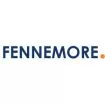- within Real Estate and Construction topic(s)
- in United States
- with readers working within the Accounting & Consultancy and Retail & Leisure industries
- within Real Estate and Construction, Wealth Management and Coronavirus (COVID-19) topic(s)
On October 1, 2025, Fennemore officially joined forces with Denver-based Galvanize Law, marking more than an expansion of construction law services across the West. The combination not only grows Fennemore's Denver footprint but also brings in a women-founded boutique firm with a deep interest and extensive experience in construction law in Denver and throughout Colorado. We sat down with January Allen, who co-founded Galvanize Law with Kate Strauss, to discuss the genesis of their firm, what this new chapter means to them and for clients, and her take on legal trends in construction across Colorado.
Q: You and Kate Strauss launched Galvanize Law as a women-founded boutique firm. What inspired you to take that entrepreneurial leap?
A: We saw a need for a different type of law firm in Denver. Construction law can be a complex and nuanced area of practice, and we wanted to create a firm where clients could receive focused, nimble counsel while also cultivating a culture where all of our legal services team members were valued and supported. Launching Galvanize allowed us to do both.
Q: What persuaded you most to join Fennemore, and why now?
A: Growth has always been part of our vision, and we reached a point where we knew we needed more resources to meet rising client expectations. This wasn't just about size; it was about aligning with a team that shares our culture and vision. We recognized the need to scale our firm to meet rising business expectations and to compete for top talent. Joining a larger firm made sense only when we found the right fit, and we found that in Fennemore because of its dedication to client service and innovation.
Q: What does this combination mean for you and Kate and for your clients?
A: Our clients will gain access to a full-service platform that includes labor and employment law, succession planning, insurance coverage, mergers and acquisitions, and outside general counsel services—ensuring seamless support across the business lifecycle. We now can serve clients with more insight, more depth, and greater geographic reach—without losing the culture that built our success at Galvanize. We are also looking forward to collaborating with new colleagues across the West and building even stronger solutions for our clients. Kate and I are also excited that we can spend more time working with our clients, and less on the day-to-day of running a boutique.
Q: Construction is one of the most dynamic sectors in the Rocky Mountain region. What makes it so complex right now?
A: Construction sits at the intersection of so many other legal areas: real estate, labor, infrastructure, even energy. Add to that rising material costs, workforce shortages, and regulatory hurdles, and you've got a sector that's both highly dynamic and highly litigious.
Q: What trends are you seeing drive the most disputes in Colorado today?
A: In Colorado and Denver specifically, construction disputes represent a pressure point in the market. Legal teams are increasingly engaged in defending clients against defect notices of claim and related litigation, often while simultaneously prosecuting claims for non-payment and tackling insurance coverage issues. Given these mounting challenges, skilled legal guidance is essential. In Colorado, many in the construction industry are being impacted both by labor shortages made worse by immigration limits, and second by material price spikes tied to tariffs. Those pressures are fueling more disputes over payment, delays, and defective work, but many of those losses aren't covered by standard insurance. We're seeing more clients ask us to step in proactively — to help with contract structures, risk allocation, insurance coverage counseling, and project planning. They want their attorneys to be problem-solvers, not just litigators.
Q: Subcontractors are the backbone of Colorado's construction industry. What challenges are they facing today, especially with new legislation in play?
A: Subcontractors are under pressure from all sides — squeezed by rising costs, labor shortages, and tighter contract terms. Recent legislation has also shifted how defect claims and payment disputes are handled, which can increase their risk exposure. Our role is to help subcontractors understand these changes, negotiate fairer contracts, and defend their rights when disputes arise. Having walked with them through these issues for years, we know how critical it is to give subcontractors a strong voice.
Q: Looking ahead, how do you see construction law evolving over the next five years?
A: I think we will continue to see more disputes tied to infrastructure and renewable energy projects, and more reliance on technology to manage both contracts and litigation. Attorneys will need to be just as comfortable advising on preventive strategies as they are in the courtroom.
Q: Finally, what advice would you give to young attorneys — especially women — interested in construction law?
A: Don't be timid. You belong at this table. Find mentors, build your network, get involved in industry organizations, and don't be afraid to call on your colleagues for information or advice. Construction law is a challenging but rewarding practice, so if you have a vision, go for it.
With our October 1 combination, Fennemore and Galvanize Law bring together expanded resources, a shared entrepreneurial culture, and a proven track record of representing construction clients in Denver and across Colorado. The future of construction law in the West is about precision, insight, and depth, and this new team is poised to deliver all three.
The content of this article is intended to provide a general guide to the subject matter. Specialist advice should be sought about your specific circumstances.

